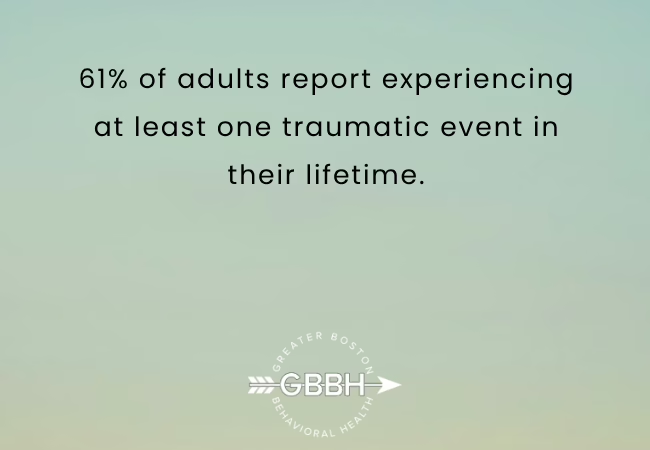Depression and trauma are deeply interconnected. Many people struggling with major depressive disorder (MDD) have also experienced traumatic events—from childhood abuse and neglect to domestic violence, accidents, or sudden loss. Trauma can fundamentally alter how the brain processes emotion, leading to persistent sadness, hopelessness, isolation, and emotional numbness.
At Greater Boston Behavioral Health, we understand that recovery from depression and trauma requires more than symptom relief—it demands a safe, structured, and immersive healing environment. That’s why our Residential Treatment Program in Massachusetts is uniquely designed to address both conditions together through evidence-based care and compassionate support.
What Is Residential Mental Health Treatment?
A residential treatment program provides 24/7 mental health care in a supportive, non-hospital setting. Unlike outpatient care, residential programs offer:
- A distraction-free environment
- Daily individual and group therapy sessions
- Trauma-informed psychiatric care
- Medication management
- Holistic therapies such as mindfulness, yoga, and expressive arts
This structure is particularly effective for individuals who have not responded to outpatient therapy alone or who experience co-occurring disorders like anxiety, PTSD, or substance use.
Why Depression and Trauma Often Co-Occur
Research shows that individuals who have experienced trauma are 2 to 3 times more likely to develop depression. This is due to several factors:
- Neurobiological changes from trauma, including dysregulation in the limbic system
- Negative self-perceptions shaped by guilt, shame, or learned helplessness
- Chronic stress responses like hypervigilance and emotional shutdown
- Social withdrawal and detachment from meaningful relationships
In our Mental Health Programs in Massachusetts, we use trauma-informed practices to treat the whole person—not just their symptoms.
Residential Treatment: A Safe Space for Deep Healing
24/7 Support and Monitoring
In our Mental Health Treatment Center Massachusetts, residents receive around-the-clock care from trained professionals, including therapists, nurses, and case managers.
Integrated Trauma Therapy
Our Trauma Therapy Program in Massachusetts includes modalities such as:
- Cognitive Behavioral Therapy (CBT)
- Eye Movement Desensitization and Reprocessing (EMDR)
- Trauma-Focused Cognitive Behavioral Therapy (TF-CBT)
- Somatic therapies to reconnect body and mind
These approaches help clients safely process painful memories and rebuild emotional resilience.
Medication Management
For those with severe depression or PTSD, medication may be a key part of stabilization. Our psychiatrists evaluate and prescribe treatment as part of a comprehensive, personalized care plan.
Holistic Healing
From yoga and meditation to art therapy and journaling, our program promotes whole-person wellness—mind, body, and spirit.
Who Benefits Most from Residential Treatment?
Residential treatment may be right for you or a loved one if:
- Outpatient therapy hasn’t helped
- You’re experiencing suicidal thoughts or self-harm
- Daily functioning is impaired by emotional distress
- You feel unsafe at home due to trauma triggers
- You’re dealing with co-occurring issues like anxiety, addiction, or anger
Our Residential Treatment Program in Massachusetts gives you the time, space, and support needed for real breakthroughs.
Transitioning from Residential to PHP or IOP
Recovery doesn’t end after residential care. Our continuum of care ensures lasting support through:
➤ Partial Hospitalization Program Massachusetts (PHP)
A structured step-down offering full-day treatment without overnight stay—ideal for maintaining progress after residential care.
➤ Intensive Outpatient Program Massachusetts (IOP)
Flexible treatment that allows clients to reintegrate into work, school, and family life while continuing therapy 3–5 days a week.
These transitions are seamlessly coordinated by your care team to avoid setbacks and strengthen long-term outcomes.
A Day in Residential Treatment: What to Expect
- 7:30 AM – Morning meditation and breakfast
- 9:00 AM – Individual therapy or medication check-in
- 10:30 AM – Group session on trauma processing or depression coping skills
- 12:00 PM – Lunch and peer connection
- 1:00 PM – Expressive arts therapy or movement therapy
- 3:00 PM – Skills-building workshop (e.g., distress tolerance, emotion regulation)
- 5:30 PM – Dinner
- 7:00 PM – Evening reflection and journaling
- 9:00 PM – Quiet time and lights out
This consistent structure offers safety, predictability, and healing space for those emerging from chaos and despair.
Trauma-Informed Care: A Foundation for Recovery
Healing from trauma requires more than traditional therapy—it requires a trauma-informed environment where every aspect of care acknowledges the impact of past experiences. At our Mental Health Treatment Center in Massachusetts, this includes:
-
Prioritizing emotional safety and predictability
-
Training staff in trauma sensitivity and de-escalation
-
Using non-retraumatizing language and interventions
-
Empowering clients through collaborative decision-making
This approach helps individuals feel respected, understood, and empowered—essential conditions for true healing from trauma and depression.
Treating Co-Occurring Disorders in Residential Care
Many clients with depression and trauma also struggle with co-occurring conditions, such as:
-
Anxiety or panic disorders
-
Substance use or addiction
-
Eating disorders
-
Borderline personality disorder
-
Anger or impulse control issues
Our Residential Treatment Program in Massachusetts is designed to treat the full spectrum of mental health concerns through a multidisciplinary team that includes therapists, psychiatrists, nurses, case managers, and wellness coaches. This ensures all aspects of your mental health are addressed simultaneously—not separately.
Life Skills and Relapse Prevention Training
Stabilization is only the first step—long-term success means preparing for life outside of treatment. Our residential programs include:
-
Daily structure and healthy routines
-
Time management and goal-setting workshops
-
Relapse prevention planning for depression or PTSD
-
Coping tools to manage stress, triggers, and interpersonal conflict
-
Job readiness and educational planning support
This makes our treatment not only about healing the past, but also building a sustainable future.
The Power of Peer Support in Residential Recovery
One of the most impactful parts of residential care is connection. Living and healing alongside others with similar struggles creates:
-
A sense of shared experience and belonging
-
Opportunities to practice communication and empathy
-
A chance to celebrate growth together and reduce isolation
-
A built-in support network during vulnerable moments
In our residential setting, these peer bonds often become a source of strength and motivation for continued recovery.
Why Choose Greater Boston Behavioral Health?
At Greater Boston Behavioral Health, we are committed to trauma-informed, compassionate mental health care. Whether you’re recovering from deep emotional wounds or facing severe depression, our Mental Therapy Programs in Massachusetts offer:
- Expert clinicians trained in trauma and mood disorders
- A full continuum of care from residential to outpatient
- Evidence-based therapies and holistic wellness
- Safe, supportive environments for healing
- A team that believes recovery is possible for everyone
Take the First Step Toward Healing
Depression and trauma can feel like mountains too steep to climb—but you don’t have to climb them alone. If you or a loved one is struggling, residential mental health treatment can be the turning point.
Call Greater Boston Behavioral Health today at 888.278.0716 to learn more about our Depression and Trauma Therapy Programs in Massachusetts. Your path to peace, purpose, and healing starts here.
Frequently Asked Questions
Is residential treatment the same as a hospital stay?
No. Residential treatment takes place in a therapeutic, homelike setting, unlike clinical hospital environments. It provides structure without feeling institutional.
How long does residential treatment for depression and trauma last?
Programs typically last 30 to 90 days, depending on individual needs and insurance coverage.
Will my treatment be personalized?
Yes. Every client receives an individualized treatment plan, combining talk therapy, medication (if needed), trauma processing, and life skills training.


